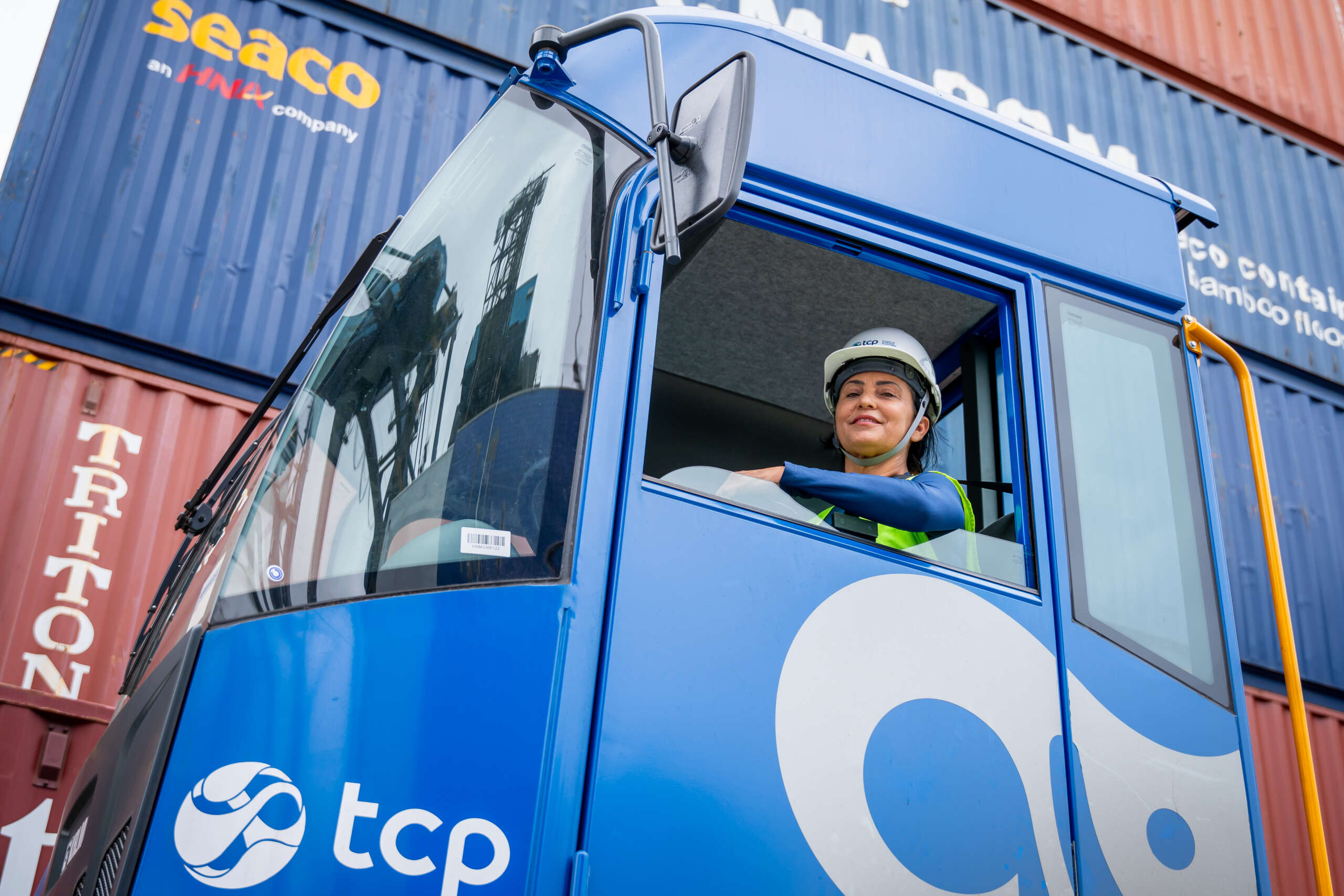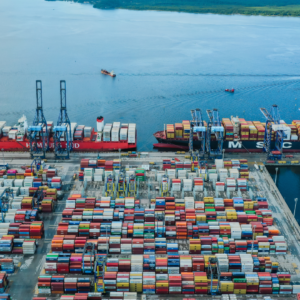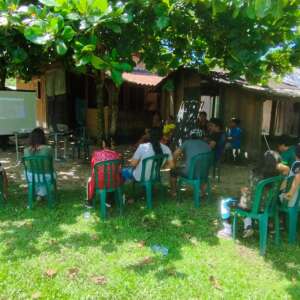The terminal has more than 30 women in leadership positions; in the operations sector, they are already more than double the number registered 10 years ago.
Gone are the days when dolls were a girl’s thing and trolleys (or ships) were a boy’s toy. In recent years, women have conquered space in mostly male environments and shown that the “weaker sex” has much more strength than one might think. TCP, the company that manages the Paranaguá Container Terminal, is a great example of the presence of women in positions previously held only by men: in the last 10 years, the number of women in the operations sector has grown by 126% in this division of the company alone. When it comes to leadership positions, representation is even more significant: today there are 33 female leaders, six times more than in 2013.
The increase in female presence at TCP is no coincidence. One of the company’s guidelines is to increase the number of women in all areas, especially in the operations sector. “There is an alignment with managers to prioritize the screening of women’s CVs for positions that require more attention, organization and care, such as RTG and CT operators, for example,” says Washington Renan Bohnn, TCP’s HR and quality manager.
Daniele Midori is one of the first 10 women to join a team of Transport Truck (CT) operators at TCP, 12 years ago. She worked for four years on this equipment – capable of carrying up to 85 tons and responsible for transporting the containers inside the terminal between the stacks and the quay. After this period, she had the opportunity to take part in training and internal opportunities, and was promoted to the position of RTG operator, a role she has held for eight years.
“At first it wasn’t easy because of my fear of heights, but little by little I learned to do the job safely and with satisfaction. I’m very proud to be the operator of such a large machine,” she says. RTGs are gantry cranes responsible for stacking containers in the terminal yard. They have a lifting capacity of 46 tons and a lifting height of 21.2 meters, the equivalent of a 7-storey building.
According to Bohnn, as well as more job opportunities at the Terminal, the growth in the number of professionals in operational positions is a reflection of women feeling safer and more confident to seek jobs and development in this area, receiving support and training from the company, as is the case with Solange do Rocio Ramos, a CT operator.
She worked as a tradeswoman since she was a teenager and decided to learn to drive trucks under the influence of her husband, who is a driver. Six years ago, she joined TCP driving conventional trucks in the old warehouse area, but was soon promoted and trained by the company itself to operate CTs, a position she has held since 2021. Today, as well as driving the equipment, she also trains new operators, having already trained three new CT drivers. “I feel recognized for today being able to train the drivers who will be part of the TCP team and it’s great to see that here we give opportunities to new professionals, showing that a woman’s place is where she wants to be,” says Solange.
The Terminal currently has 62 CTs and seven more are due to arrive in 2024. There are 40 RTGs, 11 of which were acquired last year. Of the 102 pieces of equipment, 19 are operated by women, a number that may still seem small, but has grown significantly compared to 2010, when there were no women in this sector.
There are 13 CT operators and six RTG operators. Of these, nine professionals were already working at TCP and reached their new positions through progression and training within the company, and 10 were hired through a direct selection process for these positions. “This demonstrates TCP’s concern to develop and train its female professionals, so that they have the same opportunities as men and can establish a career plan at the Terminal that doesn’t limit them in terms of hierarchical position or jobs that require technical training,” adds Washington.
Terminal promotes internal actions for Women’s Week
Between March 6 and 8, TCP is holding a series of internal actions for Women’s Day, focused on well-being and offering services to its female employees. On Friday, the talk “Encouragement and support for women’s professional growth” will be given by psychologist Lidiane Costa Maria da Silva.
TCP is considered the largest employer on the coast of Paraná, with 1,500 employees. In 2023 alone, 70 women were hired, totaling 303 professionals, which represents 20% of the terminal’s workforce.



